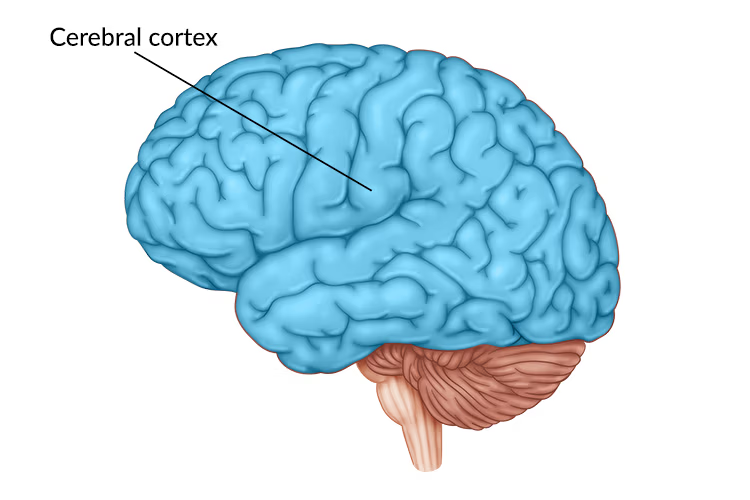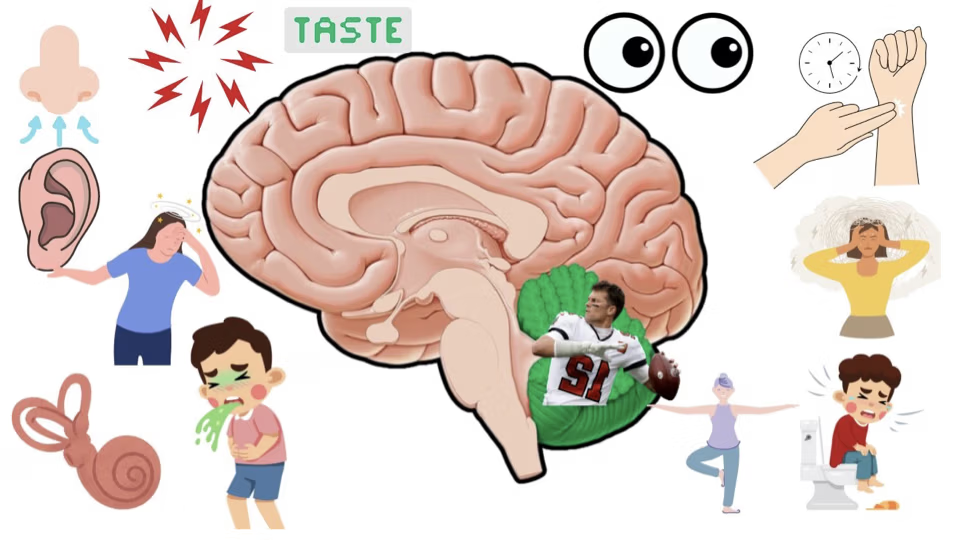Why Your Brain's "Quarterback" Matters More Than You Think
Let’s dive straight in. The cerebellum—often overlooked but critically important—is the brain’s quarterback. It’s the Tom Brady of your neurological system, managing over 70 billion neurons, a staggering 80% of all neurons in your brain. When your cerebellum falters, it’s not just a minor inconvenience; it’s a potential crisis that can cause a wide range of debilitating symptoms.
Do you ever experience brain fog, anxiety, or dizziness? These could be red flags of cerebellum dysfunction. From racing heartbeats to unexplained vertigo, these are just a few of the issues linked to cerebellum damage. This part of the brain isn’t just responsible for motor control; it also plays a critical role in sensory perception, balance, and even emotional regulation.
The Science Behind Cerebellum Function
Here’s where it gets fascinating. The cerebellum acts as the gatekeeper of your brain, ensuring that all neurological signals are properly controlled and slowed down. Imagine driving a car with a reliable brake system—that’s your cerebellum. When it’s functioning well, it keeps everything in check. But when it’s compromised, it’s like driving without brakes, leading to all sorts of “accidents” in your neurological system.
Symptoms You Should Never Ignore
If you’re suffering from symptoms like double vision, nausea, or even a sense of impending doom, your cerebellum might be the culprit. These symptoms are often misdiagnosed because most doctors aren’t trained to look at the cerebellum. Yet, these could be signs that your brain’s “gatekeeper” is underperforming.
Understanding the Importance of Balance and Coordination
The cerebellum is also responsible for balance and coordination. Simple tests like tandem walking or the “finger-to-nose” test can reveal a lot about its health. If you struggle with these, it’s a strong indication that your cerebellum needs attention.
Why Conventional Treatments Fail
Most treatments overlook the cerebellum, focusing instead on the symptoms. But here’s the kicker: if your cerebellum isn’t addressed, no amount of medication or therapy will bring lasting relief. This is why many people with chronic neurological issues continue to suffer despite seeking medical help.
The Role of Nutrition and Supplements
A strong cerebellum requires proper nutrition. Nutrients like Vitamin D, Thiamine (B1), and Omega-3 fatty acids are essential. Supplements like Benfotiamine and Alpha-Lipoic Acid can make a world of difference because they’re both fat and water-soluble, meaning they effectively nourish your brain.
How to Take Control of Your Brain Health
It’s time to be proactive. If you’re experiencing symptoms that just won’t go away, it’s time to consider cerebellum-focused therapies. Strengthening your cerebellum is like going to the gym for your brain. With targeted exercises and the right nutritional support, you can regain control and improve your quality of life.
Ready to Take the Next Step?
You don’t have to live with unexplained neurological symptoms. By focusing on your cerebellum, you can unlock a pathway to better health. Whether it’s through specific exercises, dietary changes, or the right supplements, the journey to wellness starts with understanding the role of your brain’s gatekeeper.
If the cerebellum isn’t working well, it can cause a lot of problems, especially with how you move and balance. Here’s a list of signs of cerebellar disruption:
- Clumsy movements: You might have trouble controlling your movements, making you seem unsteady or clumsy.
- Shaking: Your hands or other parts of your body might shake when you try to do something, like picking up a pencil.
- Eye twitches: Your eyes might move quickly without you trying, which can make it hard to see clearly.
- Reaching problems: You might reach too far or not far enough when trying to grab something.
- Slurred speech: It might be hard to speak clearly, making your words sound slurred.
- Dizziness: You might feel like the room is spinning, which can make you feel dizzy or even sick.
- Weak muscles: Your muscles might feel floppy or weak, making it hard to do things like run or lift heavy objects.
- Wobbly walking: You might walk with a wide stance or have trouble keeping your balance.
- Shaking when trying to do something: Your hands might start shaking more when you try to do something precise, like drawing a straight line.
- Trouble with coordination: It could be hard to do things that need good timing and control, like playing video games or tying your shoes.
- Thinking and mood changes: Sometimes, it might be harder to pay attention, or you might feel different emotions more strongly
Get Expert Help Today
If you’re ready to tackle your cerebellum issues head-on, I’m here to help. Schedule a Zoom call today, and let’s start your journey to better health. Remember, you were designed to thrive, not just survive. Let’s make that a reality!
Frequently Asked Questions (FAQ)
The cerebellum acts as the brain's "quarterback" or "gatekeeper." It contains over 70 billion neurons (80% of all neurons in your brain) and is critically responsible for controlling and slowing down neurological signals. Think of it as the brake system for your brain—it ensures proper motor control, balance, sensory perception, and even emotional regulation. When it malfunctions, it can lead to a wide range of debilitating symptoms.
Symptoms extend beyond just balance issues and can include: clumsy/unsteady movements, shaking (tremors), eye twitches (nystagmus), dizziness/vertigo, slurred speech, wobbly walking, weak muscles, difficulty with coordination (like tying shoes), and even cognitive and mood changes like brain fog, anxiety, or a sense of impending doom.
Symptoms like anxiety, dizziness, and brain fog are frequently attributed to psychological causes or other conditions because most doctors are not specifically trained to investigate the cerebellum's role. Conventional treatments often focus on suppressing these symptoms rather than addressing the root cause in the cerebellum, leading to a lack of lasting relief for many patients.
Two simple tests can reveal potential cerebellum issues. The tandem walk test (walking heel-to-toe in a straight line) assesses balance. The "finger-to-nose" test (touching your nose with your finger with your eyes closed) checks for coordination and control. Struggling with these tasks is a strong indicator that your cerebellum may need support.
A proactive, two-pronged approach is key. Nutritionally, focus on essential nutrients like Vitamin D, Thiamine (B1), and Omega-3 fatty acids. Supplements like Benfotiamine and Alpha-Lipoic Acid are highly effective because they nourish the brain. Functionally, "brain gym" exercises targeted at the cerebellum, along with specific therapies designed to strengthen its function, are crucial for lasting improvement.









